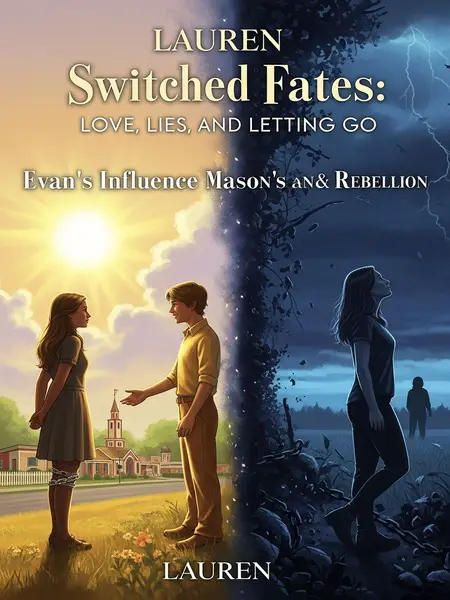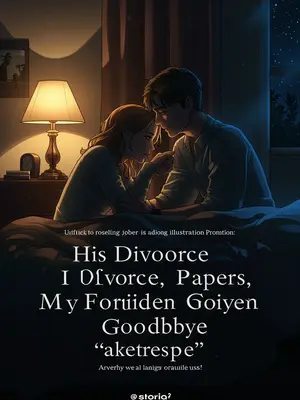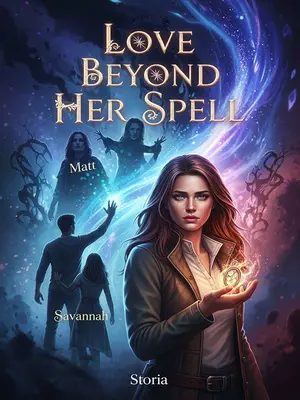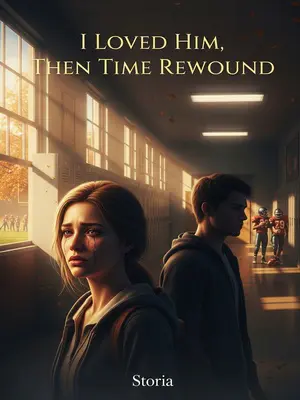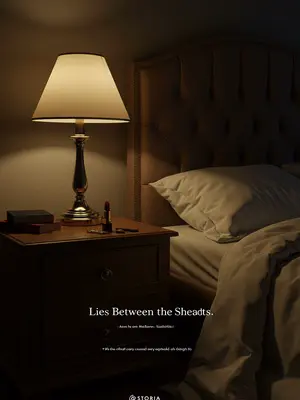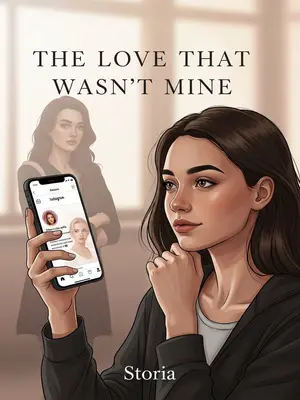Chapter 2: Rivals and Rumors
Even the teachers leaned forward in their seats, as if trying to figure out what made him different. Some parents in the back row exchanged glances, probably wondering if their own kids would ever sound so sure of themselves.
Curious about this legendary student from a working-class background, I watched him a little longer during his speech—until Evan slid a hand onto my shoulder and, with a lazy smirk, said, “So what if he’s got good grades? He’ll still end up working for my dad’s company one day.”
Evan always had a way of making everything sound like a joke, but there was a sharpness underneath. His hand on my shoulder was heavy, possessive, and I felt my cheeks heat up at being caught staring.
He wasn’t wrong. Plenty of Harvard and Yale grads ended up working for the Carter family, whose roots ran deep in Illinois politics and the manufacturing business. Their family was practically royalty in Maple Heights.
People used to say the Carters could get a street renamed if they wanted, or pull strings at the grain elevator or the country club just by picking up the phone. It was the kind of power that made you both proud and uneasy.
I lowered my head and looked away from Mason, saying nothing.
My cheeks flushed, but I kept my eyes on the floor, pretending I hadn’t been curious at all. It was easier than arguing with Evan.
Mason became famous as soon as he set foot in the school. As far as I knew, many of the rich kids disliked him, thinking he was putting on airs, and wanted to put him in his place.
It was like seeing a wild new animal at the zoo—everyone circling, sizing him up, curiosity and challenge in their eyes, each waiting for someone else to make the first move. High school could be brutal, even with marble floors and a nationally ranked debate team.
But at first, no one dared to mess with him. Everyone was keeping their distance, waiting for someone else to try first, to see if he was easy to bully.
There was an unspoken rule: don’t be the first to cross the line. Even the mean girls and varsity jocks hesitated, glancing at each other in the halls, waiting for a sign.
Besides that, everyone was curious—just how exceptional were Mason’s grades, really?
People whispered in the lunchroom, comparing test scores and trying to guess if he’d live up to the hype. Some even tried to peek at his homework, hoping a little of his genius would rub off on them.
But before he could blow us away with his first semester scores, he got caught up in a romantic scandal.
The rumor mill at our school spun faster than a tornado in spring. Everyone wanted the details, and suddenly Mason was the center of a story he never asked for.
Someone like him, it’s true, easily provoked the urge to conquer and possess.
It was like a challenge no one could resist—the mysterious new kid, too smart and too quiet for his own good.
The first to make a move was Cassidy Vaughn, from the Vaughn family. Her dad made his fortune in coal, and she was spoiled—rebellious, with a black star tattooed on her wrist and the shortest hair in school. I ran into her during an after-school break in the classroom.
Cassidy was a legend in her own right—she drove a cherry-red Mustang, sported a nose ring, and once got suspended for dyeing her hair blue. She was the kind of girl who didn’t care what anyone thought, and I admired her for that, even if she scared me a little too.
She was sitting across from Mason, with neat stacks of hundred-dollar bills piled on the desk in front of her—over twenty stacks, lined up like dominoes. She pushed them over so the bills toppled with a crisp, unmistakable smack.
The sound of money slapping the desk turned every head in the hallway. Cassidy grinned, chewing her gum, her boots propped up on the chair like she owned the place. The other students gasped, some scandalized, others just shocked into silence, their eyes wide as they watched the scene unfold.
Cassidy looked at Mason amid the clatter of money, grinning boldly: “Mason, I heard you need cash? I bet my friends I could get you in three days. Is this enough?”
Her words hung in the air, sharp and daring. Some kids nearby snickered, others just stared, waiting for Mason to lose his cool.
It was a blatant insult, but Mason only smiled. To her surprise, he picked up the fallen stacks, looked up at her with eyes as deep and unreadable as Lake Michigan, and bargained as if discussing business: “Not enough. I want the winnings from your bet, split eighty-twenty—eighty percent for me, twenty for you. That’s how we both win.”
His tone was calm, almost bored, but his eyes never left hers. There was something about the way he handled the money, like he’d seen this game before and wasn’t afraid to play.
